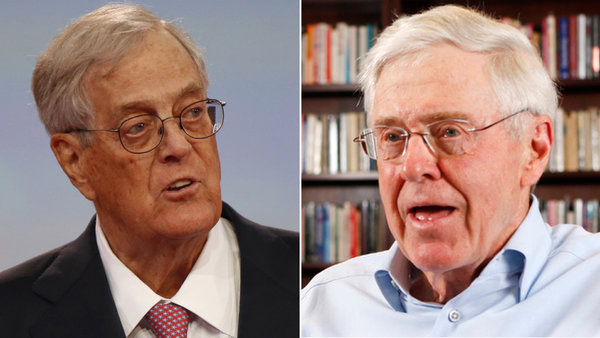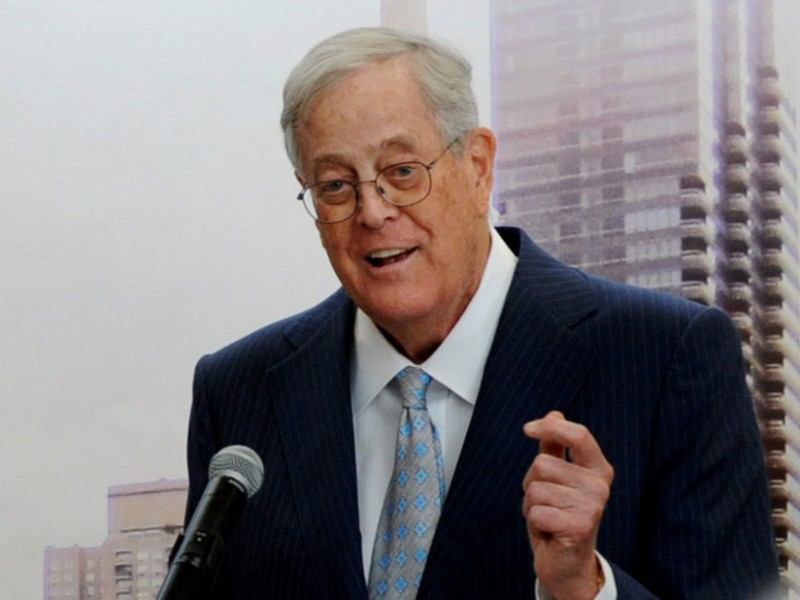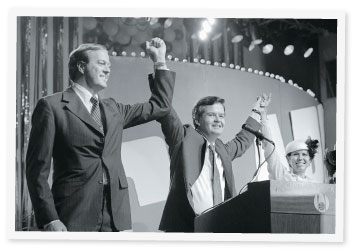February 24, 2011- IN 2008, A LIBERAL Democrat was elected president. Landslide votes gave Democrats huge congressional majorities. Eight years of war and scandal and George W. Bush had stigmatized the Republican Party almost beyond redemption. A global financial crisis had discredited the disciples of free-market fundamentalism, and Americans were ready for serious change.
Or so it seemed. But two years later, Wall Street is back to earning record profits, and conservatives are triumphant. To understand why this happened, it's not enough to examine polls and tea parties and the makeup of Barack Obama's economic team. You have to understand how we fell so short, and what we rightfully should have expected from Obama's election. And you have to understand two crucial things about American politics.
The first is this: Income inequality has grown dramatically since the mid-'70sŌĆöfar more in the US than in most advanced countriesŌĆöand the gap is only partly related to college grads outperforming high-school grads. Rather, the bulk of our growing inequality has been a product of skyrocketing incomes among the richest 1 percent andŌĆöeven more dramaticallyŌĆöamong the top 0.1 percent. It has, in other words, been CEOs and Wall Street traders at the very tippy-top who are hoovering up vast sums of money from everyone, even those who by ordinary standards are pretty well off.
Second, American politicians don't care much about voters with moderate incomes. Princeton political scientist Larry Bartels studied the voting behavior of US senators in the early '90s and discovered that they respond far more to the desires of high-income groups than to anyone else. By itself, that's not a surprise. He also found that Republicans don't respond at all to the desires of voters with modest incomes. Maybe that's not a surprise, either. But this should be: Bartels found that Democratic senators don't respond to the desires of these voters, either. At all.
It doesn't take a multivariate correlation to conclude that these two things are tightly related: If politicians care almost exclusively about the concerns of the rich, it makes sense that over the past decades they've enacted policies that have ended up benefiting the rich. And if you're not rich yourself, this is a problem. First and foremost, it's an economic problem because it's siphoned vast sums of money from the pockets of most Americans into those of the ultrawealthy. At the same time, relentless concentration of wealth and power among the rich is deeply corrosive in a democracy, and this makes it a profoundly political problem as well.
How did we get here? In the past, after all, liberal politicians did make it their business to advocate for the working and middle classes, and they worked that advocacy through the Democratic Party. But they largely stopped doing this in the '70s, leaving the interests of corporations and the wealthy nearly unopposed. The story of how this happened is the key to understanding why the Obama era lasted less than two years.
ABOUT A YEAR ago, the Pew Research Center looked looked at the sources reporters used for stories on the economy. The White House and members of Congress were often quoted, of course. Business leaders. Academics. Ordinary citizens. If you're under 40, you may not notice anything amiss. Who else is missing, then? Well: "Representatives of organized labor unions," Pew found, "were sources in a mere 2% of all the economy stories studied."
It wasn't always this way. Union leaders like John L. Lewis, George Meany, and Walter Reuther were routine sources for reporters from the '30s through the '70s. And why not? They made news. The contracts they signed were templates for entire industries. They had the power to bring commerce to a halt. They raised living standards for millions, they made and broke presidents, and they formed the backbone of one of America's two great political parties.
They did far more than that, though. As historian Kim Phillips-Fein puts it, "The strength of unions in postwar America had a profound impact on all people who worked for a living, even those who did not belong to a union themselves." (Emphasis mine.) Wages went up, even at nonunion companies. Health benefits expanded, private pensions rose, and vacations became more common. It was unions that made the American economy work for the middle class, and it was their later decline that turned the economy upside-down and made it into a playground for the business and financial classes.
Technically, American labor began its ebb in the early '50s. But as late as 1970, private-sector union density was still more than 25 percent, and the absolute number of union members was at its highest point in history. American unions had plenty of problems, ranging from unremitting hostility in the South to unimaginative leadership almost everywhere else, but it wasn't until the rise of the New Left in the '60s that these problems began to metastasize.
FULL STORY HERE:




'Mother Jones: Plutocracy Now: What Wisconsin Is Really About' have no comments
Be the first to comment this post!